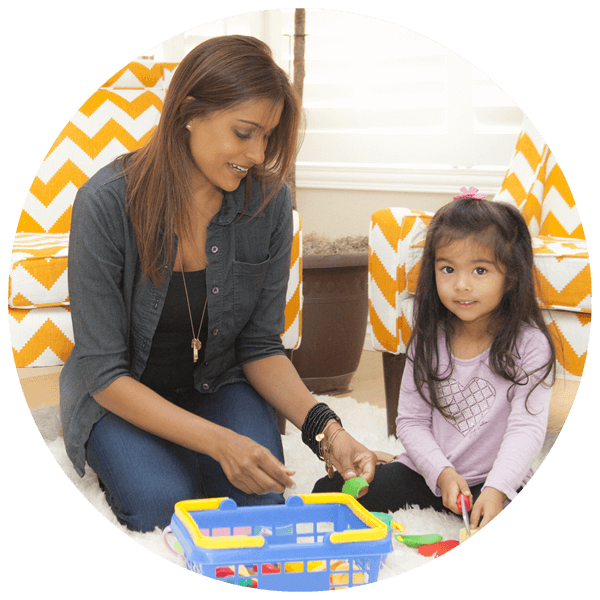- Patients Patients
Reproductive Genetics Testing
Patient Resources
Cost & Billing
- Providers Providers
- Genetic Counseling
- Login Login
- Estimate My Cost
Real Stories
One family’s MaterniT 21 PLUS story
Lailla was 39 and pregnant with her second child. After serum screen results showed there may be abnormalities, her doctor recommended further testing, specifically MaterniT® 21 PLUS.
"When the serum screen result said Mila may have Down syndrome, I was more than a little anxious.
But my doctor directed me to take MaterniT 21 PLUS, and the results came in and my doctor said I had nothing to worry about. My doctor and a genetic counselor also walked me through the other information the test can detect like SCAs [sex chromosome aneuploidies], which were previously unfamiliar to me.
The test also said that I was having a baby girl, and I couldn’t have been happier. Basically, I recommend MaterniT 21 PLUS to everybody."


A genetic counselor shares her story
Kate Hanauer, MS, CGC, is a Principal Genetic Counselor at Labcorp. Here, she shares what led her to become a Genetic Counselor, and an example of the service she provides to patients.
I’ve always been drawn to the sciences and been fascinated by the principles of genetics and the unique language of DNA. However, after working in a laboratory, I realized that the lab setting was not for me. Thankfully, a professor pointed me in the direction of genetic counseling, recognizing both my passion for the subject of genetics and also my need to interact with patients.
When people ask what it is genetic counselors do, I find it’s best to simply share a patient’s story. For example, I had a genetic counseling patient who had a pregnancy that resulted in a miscarriage (we learned the baby she lost had Down syndrome). She was in the first trimester of another pregnancy and visibly anxious.
It was obvious she needed reassurance in order to enjoy her pregnancy and our goal was to provide her with such. After discussing testing options, she and her husband elected to pursue NIPS (NIPT).
Within six days, I was able to give her the wonderful news that her NIPS (NIPT) results looked great and that the chance for her baby to have Down syndrome was extremely small. The patient was also able to learn the sex of her baby—I was able to let her know that she was expecting a baby girl!
As a genetic counselor, my job is to be “non-directive,” which means I provide information on genetics and healthcare, and also respect a patient’s autonomy and ability to decide what test is best for them.
And what truly gives me satisfaction in my work is both seeing how appreciative patients are to have the time and guidance of a genetic counselor, and the sense of fulfillment I experience guiding the patient to a more informed decision.


